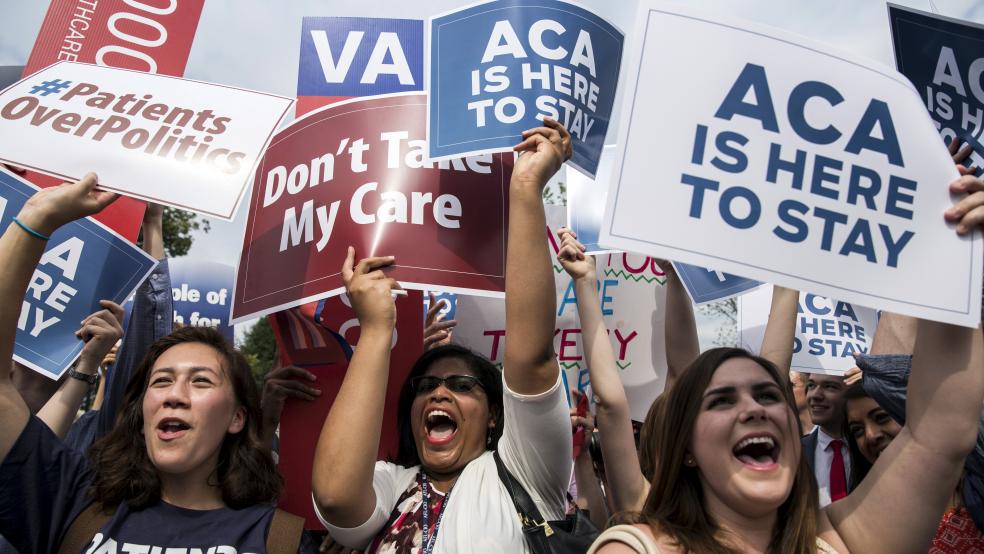For many on the left, the ideal health care system for the U.S. would have a single-payer – health care for all, insured by the federal government. Democratic presidential candidate Bernie Sanders, a senator from Vermont, is currently touting what he calls a “Medicare for All” program that would do just that.
Few, however, believe that in the current political climate – or perhaps, any political climate – the U.S. would be able to convert to a full-blown single payer system because of the trillions of dollars it would cost. But that doesn’t mean that U.S. consumers can’t enjoy at least some of the benefits of Medicare, according to Peter Orszag and Timothy G. Ferris.
Related: Medicare for All? Why Sanders Has the Edge over Clinton on Health Care
In a column published by Bloomberg View today, Orszag, a former director of both the Congressional Budget Office and the White House Office of Management and Budget, and Ferris, the director of the Mass General Physicians Organization, make the case that Medicare’s well-developed billing and claims processing system could be extended to the entire health care sector.
Estimates suggest that much of the United States’ runaway spending on healthcare over the past few decades is caused by the volume and complexity of the paperwork associated with insurance claims.
By contrast, Orszag and Ferris point out, “Medicare’s processing costs are relatively low, in part because administrative contractors streamline the payment process. All health-care payments could be gradually moved to this platform.”
“Such a change could be made in steps,” they say. “First, state Medicaid programs could begin using regional Medicare administrative contractors to process claims. Then Medicare Advantage programs, which are private insurance plans that currently enroll about 30 percent of Medicare beneficiaries, could be required to do the same. Next, the government could either require or provide incentives for self-insured employer plans to use the system.”
Related: Sanders’ Healthcare Plan Would Cost $13.8 Trillion over a Decade
“Ultimately,” they argue, “the economies of scale would become large enough to encourage private insurers to adopt the system, too. Policy makers could add incentives, if need be.”
But any suggestion that the government get more involved in healthcare will be seen as the next step on the slippery slope to socialized medicine. However, the system that Orszag and Ferris lay out keeps a layer of insulation between the government and decisions about patient care.
In essence, the government would be acting as a sort of general contractor for the private sector health insurers. The more efficient claims would continue to be processed in the private sector.
“The Medicare administrative process is already regionalized and subject to competition among processing contractors. It already includes standards for efficiency and provider education, and requires transparency in processing,” they write.
Related: 10 Healthcare Trends That Will Affect You in 2016
“At the same time, doctors and other care providers would save money and effort by dealing with just one payment-processing system, and the consistency in paperwork would reduce errors.”
In sum, they say, a consolidation of claims processing could save up to 25 percent a year on what has become one of the most expensive elements of U.S. health care.
Pie in the sky? Probably, if only because the issue is complicated and easily demagogued. And one factor the authors leave out is the extensive fraud perpetrated on Medicare on an annual basis. Of course, private insurers have fraud problems as well, but none as well publicized as Medicare’s.
Still, to anybody with a stack of insurance claim letters piling up on their desk, it might sound appealing.





